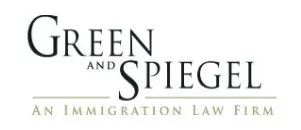The results from the U.S. presidential election are in, and Donald Trump has eked out an electoral college victory that will send him to the White House. He will assume the Presidency together with a Republican-controlled House of Representatives and Senate that could be poised to enact immigration reforms. Clients understandably are wondering what changes might be in store for the current business immigration status quo?
I give my take below. I must preface my comments with an important caveat: both those on the Left and the Right have expressed difficulty in determining his stance on immigration and many other topics. He has been criticized for changing his positions on many policies throughout his public life. Further, significant media attention has been devoted to his approach to illegal immigration, such as his promises to end sanctuary cities and to wall off the U.S.-Mexico border. There has been relatively much less attention his plans to reforming the legal immigration system and his campaign web site offers few specifics on the topic. It is therefore quite difficult — some may say impossible — to accurately predict what policies he may endorse to be enacted through Congress or through the Regulatory rulemaking process.
That being said, these are the major policy platforms I expect from a Trump Administration that could affect business immigration clients:
- Mandatory E-Verify. At present, there is no federal requirement that a company use E-Verify with respect to its employees, except in certain limited circumstances. A patchwork of states require E-Verify use under their own laws. Trump has stated that it should be expanded across the U.S.
Companies should further anticipate site investigations and I-9 Employment Eligibility Verification audits. Taking measured steps at this time to ensure compliance with existing rules and regulations is recommended.
- Reforming the H-1B Visa. Trump's Web Site cited above references reforming legal immigration to "put American workers first." A now-deleted press release explained that "The H-1B program is neither high-skilled nor immigration: these are temporary foreign workers, imported from abroad, for the explicit purpose of substituting for American workers at lower pay [...] I will end forever the use of the H-1B as a cheap labor program, and institute an absolute requirement to hire American workers first for every visa and immigration program. No exceptions."
Policy changes could therefore include higher prevailing wages, a labor market test, or both
- Curtailing Executive Action. It is no secret that Trump seeks to abandon President Obama's actions regarding Deferred Action for Childhood Arrivals (DACA). Presumably, these current lawful workers would thus lose employment authorization.
- Changes to NAFTA. Trump has stated that he will renegotiate or withdraw from the North American Free Trade Agreement. This could lead to changes of the current TN visa regime, as well as L-1 border adjudications for Canadian nationals.
It remains to be seen whether President-Elect Trump will subscribe to any kind of comprehensive immigration reform, such as that which passed the Senate in 2013. A prospective Trump Administration presents many unknowns, especially with regard to changes in immigration policy.
That said, we do not anticipate any changes in immigration law or policy until at least his inauguration in January. Further, at this time we do not anticipate any significant changes to intracompany transferee visas (L-1) or treaty visas after the inauguration, given their longstanding presence in the U.S. immigration system.
The content of this article is intended to provide a general guide to the subject matter. Specialist advice should be sought about your specific circumstances.


